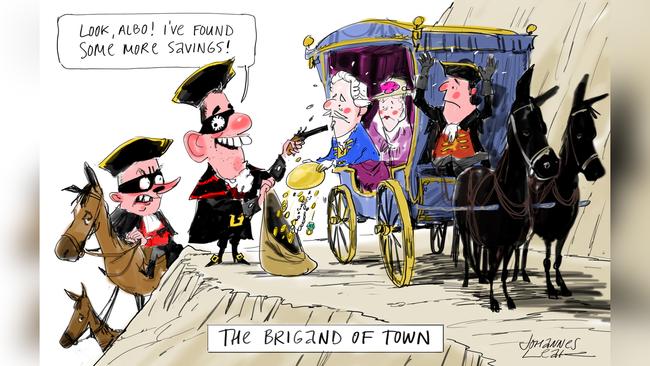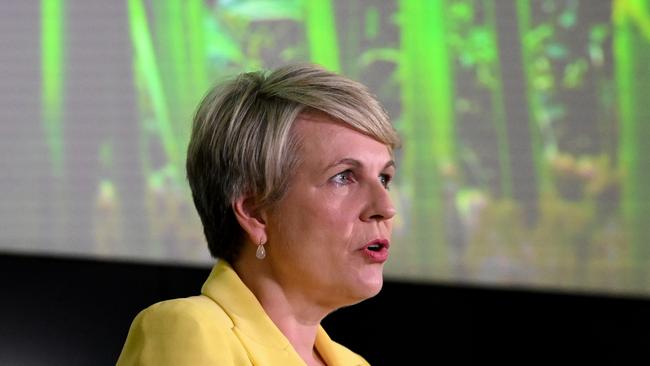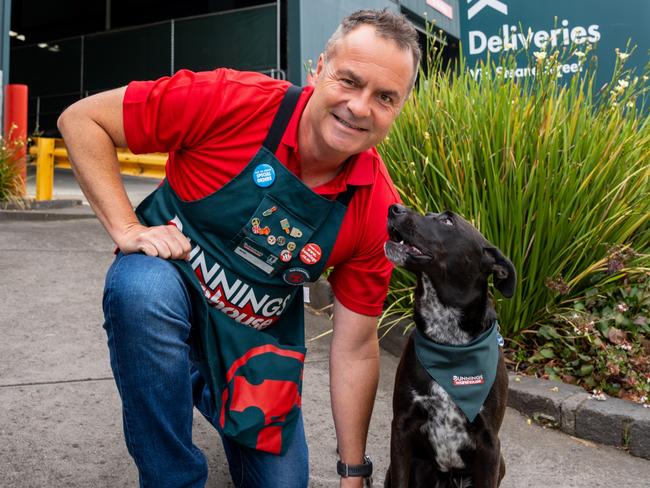
Talk around the big of town this week was not centred on the arguably rational closing of tax breaks on superannuation accounts over $3m, but just why he would chose one measure when the entire tax system is screaming for fundamental reform.
It’s yet more Canberra laziness.
Back in 2007, then Treasurer Peter Costello released the Ken Henry review into the tax system, not long after handing the rich $2.5bn in tax concessions on super.
Costello left the Henry review in his top drawer as Treasurers have ever done since, but a cursory look today would reveal only tweaks are needed to make the recommended reforms.
How much better would Chalmers look today if he unveiled widespread changes to the superannuation tax system along Henry lines rather than one-off hits on the wealthy.
The super system was not meant as a tax dodge, so why not unveil comprehensive changes to restore its stated purpose?
A review of the franking system, which has rewarded low tax paying funds with payments to compensate for dividend franking credits, and a review of capital gains tax concessions, negative gearing, and on goes the list.
NSW and the ACT are the only ones looking at abolishing stamp duty on land and replacing it with a land tax which needed Canberra backing.
Why not move to road user charges on a per kilometre basis to replace fuel excise, registration charges and myriad other fees which would actually produce a level playing field as the electric car makes its inevitable entrance?
Some form of resources tax would offset the lunacy of the Gladstone LNG terminal exports as part of a rational energy policy, and on the list goes.
A simplified two tier income tax system was one of the changes.
Not every measure has to be supported, but Chalmers always talks about national debates so let’s have one on tax before he takes one-off pot shots at rich people’s super perks, inviting media questions about the next victim and easy Luddite opposition attacks.
That is real reform, and while we’re at it then there is Productivity Commission’s five year review on the Treasurer’s desk since February 7.
-
Push for nature-related risks on balance sheets

Taskforce on Nature-related Financial Disclosure (TNFD) chief Tony Goldner did the rounds this week spreading the good word on more disclosure on nature dependence and hence risk.
The fact is more than half the world’s economic output is moderately or highly dependent on nature so if it is destroyed that by definition is a major risk to the global economy.
This is the next debate spreading from a narrow focus on carbon and the atmosphere to freshwater, the ocean and land.
In September TNFD will release its voluntary disclosure guidelines but with more than 1000 members including 80 in Australia, $US20.6 trillion ($30.5 trillion) in member assets momentum is building fast.
The aim is to get more companies to put nature-related risks on their balance sheets.
This may be seen as more compliance issues but Goldner would prefer it to be seen as a major opportunity for the clever financial brains at Macquarie and elsewhere who pioneered infrastructure financing to focus on nature financing.
Goldner rightly says there is too much focus on the credit markets, albeit with some questioning carbon market integrity, but argues let’s look at a wider picture.
Sadly Environment Minister Tanya Plibersek’s Nature Repair bill fails at first instance, focusing on narrow certificate issuance rather than an open door to let the private sector develop a market from a broad government framework.

Green Collar’s nature-plus product is one such attempt that will shortly move to credit issuance.
The TNFD is in part funded by Alasdair MacLeod’s Macdoch foundation, which in its Farming for the Future project is studying whether more natural capital means better business performance which means a double dividend for farmers and happy bankers.
Inevitably the complications flow on issues like just how to collect data along the supply chain, and who collects it and uses it best.
The bottom line is farmers will increasingly see the benefits because more than most they understand their dependence on nature.
The message is hitting home in boardrooms which are realising this risk is near and present danger for them.
It is also a major business opportunity to manage its risks through better measurement and to maximise the opportunity.
The trick is to get more capital involved by widening the focus from simply biodiversity certificates and credits.
The good news for farmers and corporates is by acting in their own best interests for a sustainable future they are creating a public good.
-
Gym, pool management returns to full fitness

Leisure management in pools and gyms was one of the worst hit by Covid, being the first to shut down and the last to reopen, but BlueFit’s Todd McHardy now has 30,000 a week in swim lessons and with some help from UK students a complement of around 2000 mainly part-time staff.
BlueFit is a classic case of the benefits of growth funds, like 40 per cent owner Armitage, having increased by a factor of seven times over the last five years with 40 centres around the country and around $85m in annual revenues.
McHardy learned the game at his mum’s business in Melbourne and with partner Otua runs the business which started in 2007.
Most are pools but the realm includes golf courses, gyms and basketball centres.
He is still smaller than Geoff Lord’s Belgravia but the focus is as much on quality than growth for the sake of it.
Former Bunnings boss John Gillam is through Armitage the chair of the company and has instilled discipline, such as a strict focus on data collection so each week returns are clear and operating metrics are well known to guide future decisions.
Expansion is in part through council leases and other contracts with BlueFit taking over pool and gym management.
McHardy thinks the government focus on swim safety should be more on user-friendly smaller pools than the Olympic pools so favoured by local governments.
-
On cyber security, preparation beats intervention
The welcome focus on cyber security risk should focus more on how best to prepare and then respond, rather than threats for government intervention.
Yet more Australia Post cutbacks heighten the risk, given 71 per cent of punters fear cyber theft and question whether the percentage of people trusting the senders of letters (33 per cent) will increase.
Optus is preparing for receipt of the Deloitte report on its snafu last year around the time of its May 25 profit report.
Just how much is actually publicly released is a different matter, given it is a blueprint for what happened it may not make sense to open the door for further action.
-
Pets a distraction for Bunnings?

Bunnings used to play in “home improvement and outdoor living” – now it’s “home and lifestyle”, which allows boss Mike Schneider to expand into pet food and equipment, but the issue is how big a distraction it becomes.
Sixty-one per cent of Australian homes have pets so the market is clear and Schneider plans to make space in stores by moving bulkier goods like play gyms online.
It’s a busy space led by TPG’s Greencross/Petbarn, Woolworths wanting to buy Petstock and online giants like Amazon.
The problem with expanded focus is the risk of losing core customers who don’t want to fight past cans of Pal to get to the nails, but analysts back the agenda saying Bunnings is one retailer which can broaden its market.








The small-target revenue raising tactics of Treasurer Jim Chalmers beggar belief and show a fundamental lack of leadership by the Albanese government when it comes to tax reform.